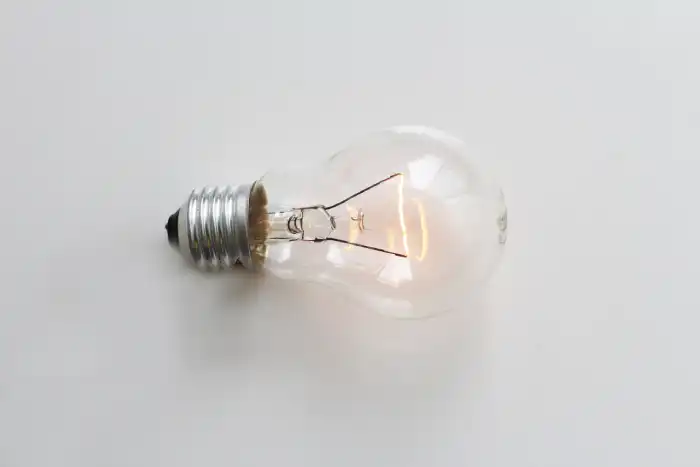It’s natural to feel anxious about things that we don’t fully understand or have limited experience with, and this is especially true when it comes to our relationships. In particular, there can be moments of discomfort when our partners choose to drink al*cohol.
Is It Wrong That I Get Worried When My Girlfriend Drinks?
No, it’s not wrong to feel concerned when your girlfriend drinks. Such worries often stem from a genuine care for her well-being. Instead of viewing it as a negative emotion, use it as an opportunity to communicate openly about each other’s expectations and concerns regarding alcohol consumption. Discussing your feelings can strengthen your relationship and foster mutual understanding.
A Step-By-Step Guide To Controlling The Situation
Analyses The Root Of The Discomfort
The root of the discomfort may be a combination of psychological, emotional, and physical factors. It is important to identify the source of the discomfort so that you can address the issue and move forward.

Psychological factors may include a fear of becoming addicted or a fear of the unknown. Emotional factors may include feelings of shame or insecurity.
Physical factors may include an intolerance to al*cohol or an allergic reaction.
Answering these questions will help you to gain clarity on why you are feeling uncomfortable and will allow you to take the necessary steps to address the issue.
Discuss The Issue With Your Partner
Ask questions to better understand the reasons for their drinking and make sure to acknowledge their feelings. It is important to come to a mutual understanding that respects the feelings of both parties. Remember that your partner is an individual and should be respected as such.
Respect their boundaries and opinions, and try to find an agreement on how to move forward together.
Examine Your Relationship With Al*cohol
Do you have a healthy relationship with it? Do you drink regularly or excessively?
Do you find yourself reaching for beer or wine as a coping mechanism for stress or anxiety?
Examining your own relationship with al*cohol can help you to understand why you are so uncomfortable with your girlfriend drinking.
Consider Whether You Have An Addiction Problem
Do you feel like you have to drink every time you go out? Are you unable to control your consumption of al*cohol?
Do you experience withdrawal symptoms when you don’t drink? If you answered yes to any of these questions, it’s important to seek help from a professional.
Addiction is a serious mental health issue that can be difficult to break. With the right support and treatment, however, it is possible to overcome addiction and reach a healthier state of being.
Analyze If There Is A Trust Issue In Your Relationship

If you are uncomfortable with your girlfriend drinking, there may be a trust issue in your relationship. It’s important to take time to analyze your feelings and determine if there is an underlying issue that makes you uncomfortable.
Do you feel like she doesn’t respect you when she drinks?
Or do you feel like she’s not being completely honest with you?
Talk with her openly and honestly about your concerns, and understand that it may take some time to build trust and rebuild your relationship.
Seek Professional Help If Needed
Seek professional help. A therapist or counselor can help you understand your feelings and provide guidance on how to better manage them.
They can also provide support and advice on how to communicate better with your girlfriend and negotiate a healthier drinking balance that works for both of you.
Professional help can be invaluable in addressing the underlying issues of your discomfort and helping you to resolve them.
Learn How To Accept Your Partner’s D*rinking
Learning how to accept your partner’s drinking can be difficult, especially if you don’t drink yourself.
Try to focus on the positive aspects of your relationship, such as shared interests and activities. It can also help to talk to your partner about your feelings and any concerns you have.
Set boundaries with your partner, such as agreeing to not drink around you if it makes you uncomfortable.
Ultimately, remember that you are in control of your own decisions, and you don’t have to participate in activities that make you uncomfortable.
Learn How To Manage Your Own Feelings Towards It
Learning how to manage your feelings towards your girlfriend’s drinking is a key step in overcoming your discomfort. Your girlfriend’s drinking habits are not something to be judged or criticized but rather accepted for what it is. Start by examining your feelings about drinking, and why it makes you uncomfortable.
Are you worried about your girlfriend’s safety?
Do you feel like you have a lack of control?
Identify and confront any underlying issues that may be causing your discomfort. Once you have a better understanding of the root of your feelings, it will be easier to come up with an action plan to manage and reduce your discomfort.
Frequently Asked Questions
1.Q: Is it normal to be uncomfortable when your girlfriend drinks?
A: Everyone has different opinions on al*cohol and it is perfectly fine to have different opinions. It is important to communicate openly and honestly with your girlfriend about your feelings and concerns.
2.Q: How can I talk to her about the discomfort of drinking?
A: Express your feelings and concerns clearly and calmly, and listen to her point of view in return. Be willing to compromise and come to an agreement that both of you can live with.
3.Q: What should I do if she doesn’t want to change her habits?
A: If your girlfriend doesn’t want to change, respect her decision. You can still express your feelings and concerns, but ultimately it is up to her to decide how she wants to live her life.
4.Q: How can I help if she is struggling with al*cohol abuse?
A: Support her and encourage her to seek professional help. Offer to go with her to doctor’s appointments, therapy sessions, or other treatment programs. Let her know that you are there to support her, and be willing to help her through the process.
5.Q: What should I do if my girlfriend refuses to get help for her drinking problem?
A: Remain supportive and understanding. Let her know that you are there for her if she ever decides to seek help. However, it is ultimately up to her to make the decision to get help.
6.Q: What are some of the signs of a*lcohol abuse?
A: Some of the signs of al*cohol abuse include drinking in excess, experiencing blackouts, and neglecting responsibilities. Other signs include changes in behavior, such as increased aggression or irritability; changes in physical appearance, such as weight loss or red eyes; and changes in relationships, such as isolating oneself from friends and family.
7.Q: Are there any risks associated with it?
A: Yes, there are many risks associated with excessive drinking. These include physical risks, such as liver damage, stroke, and heart disease; mental health risks, such as depression and anxiety; and social risks, such as relationship problems and legal issues.
8.Q: Is it possible to drink in moderation?
A: Yes, your girlfriend can drink in moderation. Moderation is defined as two drinks per day for women and three drinks per day for men. It is important to talk to your girlfriend about the risks associated with excessive drinking, and to help her set realistic limits.
9.Q: How can I help make healthier decisions when it comes?
A: You can help your girlfriend make healthier decisions when it comes by providing support and encouragement. Offer to go with her to social events that don’t involve, and suggest activities that don’t involve drinking. Encourage her to make healthier choices, such as limiting her consumption or substituting al*coholic beverages with non-al*coholic options.
10.Q: What should I do if she becomes aggressive?
A: If your girlfriend becomes aggressive when she drinks, it is important to remove yourself from the situation and seek help from a professional. Let her know that her behavior is unacceptable, and encourage her to seek professional help.
11.Q: How can I help if she is suffering withdrawal?
A: If your girlfriend is suffering from withdrawal, it is important to seek professional medical help and support her through the process. Offer to accompany her to doctor’s appointments, and encourage her to take prescribed medications. Provide emotional support and be a source of strength for her during this difficult time.
12.Q: What should I do if she becomes dependent on?
A: Seek professional help and support her through the process. Encourage her to attend counseling or support groups, and offer to go with her to doctor’s appointments. Let her know that you are there for her, and be willing to help her through the process.
Conclusion
Recognize and address the root of our discomfort with our partner’s drinking. If we can identify the source of our fear and work to confront it and move through it, we can create a healthier relationship with our partner and create space for honest communication and understanding.
